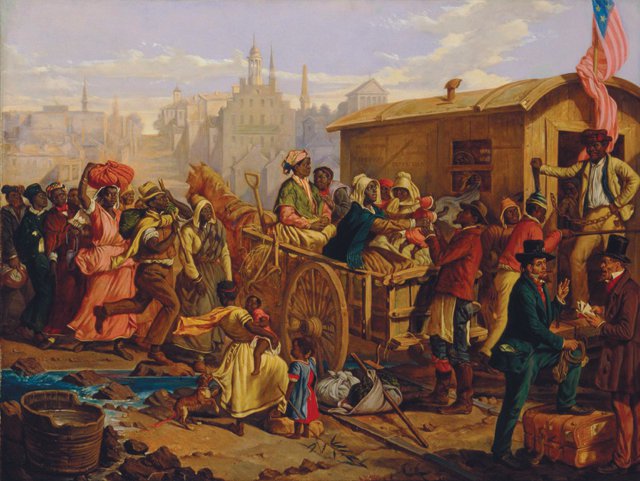
https://www.encyclopediavirginia.org/media_player?mets_filename=evr7226mets.xml
University of Alabama history professor Rothman (Flush Times and Fever Dreams) delivers a harrowing portrait of how the domestic slave trade “helped define the financial, political, legal, cultural, and demographic contours” of 19th-century America.
Focusing on three business partners—Isaac Franklin, John Armfield, and Rice Ballard—who ran the largest slave-trading operation in the country, Rothman explains how Congress’s 1808 ban on the importation of enslaved people “effectively creat[ed] a federally protected internal market for human beings.”
When Natchez, Miss., banned slave-trading in 1833 in large part because Franklin had been caught dumping diseased corpses into a ravine, he simply moved his operation a mile outside of the city and continued receiving and reselling thousands of slaves bought by Armfield and Ballard from declining tobacco plantations in Maryland and Virginia.
Rothman delineates the links between the domestic slave trade, the forced removal of Native Americans from the Southeast, the growth of the American banking system, and the establishment of national transportation networks. Through meticulous archival research, he debunks the myth that slave traders were social outcasts and tracks how their brazen advertisements and abusive treatment of captive men, women, and children were used by abolitionists to stoke public outrage. This trenchant study deserves a wide and impassioned readership
Comments (0)
You don't have permission to comment on this page.